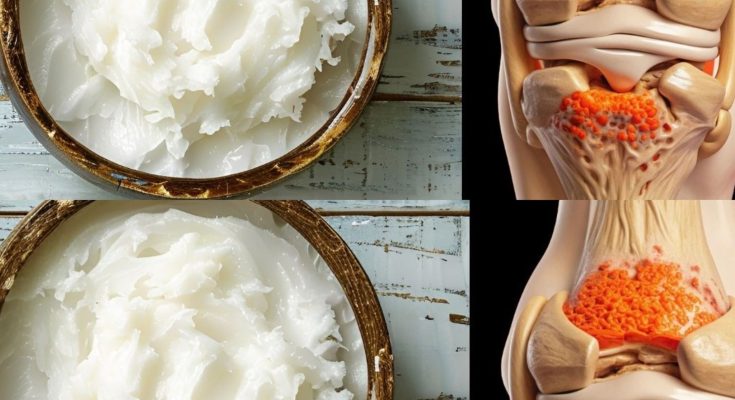Cartilage plays a vital role in the body, serving as a cushion between bones to ensure smooth movement of the joints. Unfortunately, due to aging, injury, or wear and tear, the cartilage in your knees can deteriorate, leading to discomfort, pain, or even chronic conditions like osteoarthritis. While medical treatments and therapies exist, nutrition is an often-overlooked yet powerful way to rebuild and maintain knee cartilage.
Incorporating specific foods into your diet can promote cartilage repair and overall joint health. Here’s a breakdown of the best foods and nutrients you should consume to support your knees.
1. Collagen-Rich Foods
Collagen is a key protein that provides structure to cartilage. Consuming foods high in collagen can help maintain and repair knee cartilage.
- Bone Broth: Made by simmering bones for hours, this nutrient-dense liquid is rich in collagen and amino acids that aid in joint repair.
- Chicken and Fish Skin: These parts of the meat are natural sources of collagen.
2. Omega-3 Fatty Acids
Omega-3s are renowned for their anti-inflammatory properties, which can reduce joint pain and support cartilage regeneration.
- Fatty Fish: Salmon, mackerel, sardines, and tuna are excellent sources.
- Chia Seeds and Walnuts: Plant-based alternatives rich in omega-3s.
3. Vitamin C-Rich Foods
Vitamin C is essential for the production of collagen and helps protect cartilage from oxidative stress.
- Citrus Fruits: Oranges, lemons, grapefruits, and limes.
- Bell Peppers: These are high in vitamin C and add vibrant color to your meals.
- Kiwi and Strawberries: Packed with antioxidants and vitamin C.
4. Sulfur-Containing Vegetables
Sulfur is important for cartilage repair as it supports the production of glucosamine and chondroitin, two compounds found in cartilage.
- Garlic and Onions: These are natural sulfur sources.
- Broccoli and Kale: Packed with nutrients that benefit joint health.
5. Antioxidant-Packed Foods
Oxidative stress can damage cartilage over time, making antioxidants crucial for protection and repair.
- Berries: Blueberries, raspberries, and blackberries are rich in antioxidants.
- Spinach and Kale: Loaded with vitamins and phytonutrients to combat oxidative damage.
6. Foods High in Glucosamine and Chondroitin:
6. Foods High in Glucosamine and Chondroitin
These compounds are the building blocks of cartilage and help reduce joint pain.
- Shellfish: Crab, shrimp, and lobster shells are natural sources of glucosamine.
- Bone-In Meats: When cooked, the cartilage around bones releases glucosamine and chondroitin.
7. Healthy Fats
Healthy fats reduce inflammation and improve the absorption of fat-soluble vitamins like vitamin D, which supports cartilage health.
- Avocados: A creamy, nutrient-rich source of healthy fats.
- Olive Oil: Use extra virgin olive oil for cooking or drizzling over salads.
8. Vitamin D-Rich Foods
Vitamin D is crucial for bone and joint health, as it helps the body absorb calcium effectively.
- Egg Yolks
- Fortified Foods like cereals and plant-based milk.
- Fatty Fish: Another reason salmon and mackerel are so beneficial!
9. High-Protein Foods
Protein is essential for repairing damaged tissues and cartilage.
- Lean Meats and Poultry
- Legumes: Lentils, chickpeas, and beans are excellent plant-based options.
- Tofu and Tempeh: Perfect for vegetarians looking for a protein boost.
10. Herbal Remedies
Certain herbs and spices have anti-inflammatory and cartilage-repairing properties.
- Turmeric: Curcumin, the active compound in turmeric, can reduce joint inflammation and promote healing.
- Ginger: Known for its anti-inflammatory effects, it pairs well with teas or meals.
Hydration is Key
Cartilage is made up of water, so staying hydrated is critical for its health. Drink plenty of water daily to keep your joints lubricated and functioning properly.
Additional Tips for Cartilage Health
- Avoid processed foods, sugary drinks, and excessive alcohol, which can contribute to inflammation and hinder cartilage repair.
- Pair a healthy diet with regular low-impact exercises like swimming, cycling, or yoga to maintain joint mobility and strength.
Take Control of Your Joint Health
Rebuilding knee cartilage naturally is a gradual process that requires consistent effort. By incorporating these nutrient-rich foods into your diet, you can support your body’s ability to repair and maintain healthy joints, ultimately ensuring better mobility and less discomfort. Take charge of your nutrition today and give your knees the care they deserve!
Your knees will thank you!!




